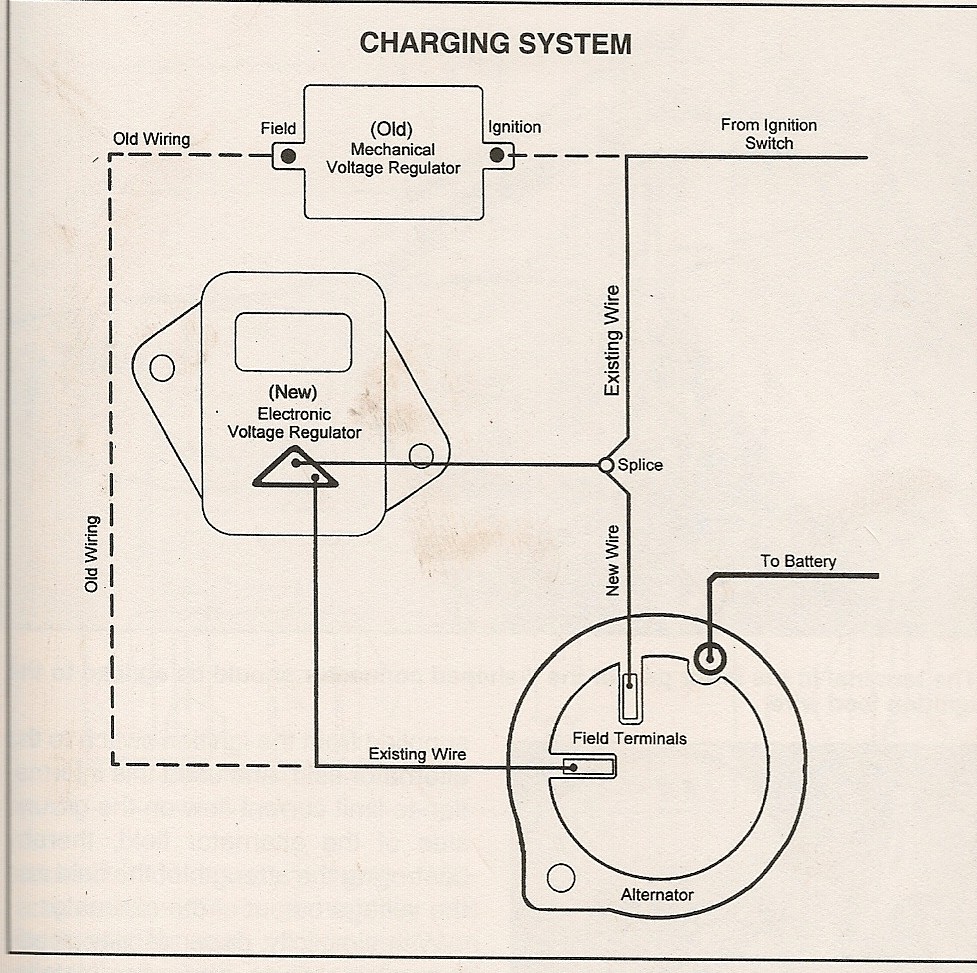When it comes to understanding the electrical system of your Ford vehicle, having a clear understanding of the Ford External Voltage Regulator Wiring Diagram is essential. This diagram serves as a roadmap for the wiring connections and functions of the external voltage regulator, allowing you to troubleshoot and diagnose electrical issues effectively.
Why Ford External Voltage Regulator Wiring Diagrams are Essential
The Ford External Voltage Regulator Wiring Diagram is crucial for several reasons:
- It provides a visual representation of the wiring connections, making it easier to identify components and their functions.
- It helps in understanding the flow of electricity through the system, ensuring proper functioning of the electrical components.
- It serves as a reference guide for diagnosing and troubleshooting electrical problems efficiently.
Reading and Interpreting Ford External Voltage Regulator Wiring Diagrams
When reading a Ford External Voltage Regulator Wiring Diagram, follow these steps to interpret it effectively:
- Identify the components and their corresponding symbols on the diagram.
- Trace the wiring connections to understand how electricity flows through the system.
- Refer to the legend or key to decode any symbols or abbreviations used in the diagram.
Using Ford External Voltage Regulator Wiring Diagrams for Troubleshooting
When faced with electrical problems in your Ford vehicle, the External Voltage Regulator Wiring Diagram can be a valuable tool for troubleshooting. Here’s how you can use it:
- Identify the specific circuit or component related to the issue you are experiencing.
- Trace the wiring connections to check for any loose connections, damaged wires, or faulty components.
- Use a multimeter to test the voltage at different points in the circuit and compare it to the values indicated on the diagram.
Importance of Safety
Working with electrical systems can be dangerous, so it’s essential to prioritize safety when using wiring diagrams. Here are some safety tips and best practices to follow:
- Always disconnect the battery before working on any electrical components to prevent the risk of electric shock.
- Use insulated tools to avoid accidental contact with live wires.
- Avoid working on electrical systems in wet or damp conditions to reduce the risk of short circuits.
Ford External Voltage Regulator Wiring Diagram
Ford External Regulator Wiring Diagram

Ford Voltage Regulator Wiring Diagram

1979 Ford Voltage Regulator Wiring

Wiring Diagram For Ford External Voltage Regulator – Diagram Techno
Wiring Diagram For Ford External Voltage Regulator – Wiring Secure

Ford External Voltage Regulator Wiring Diagram
